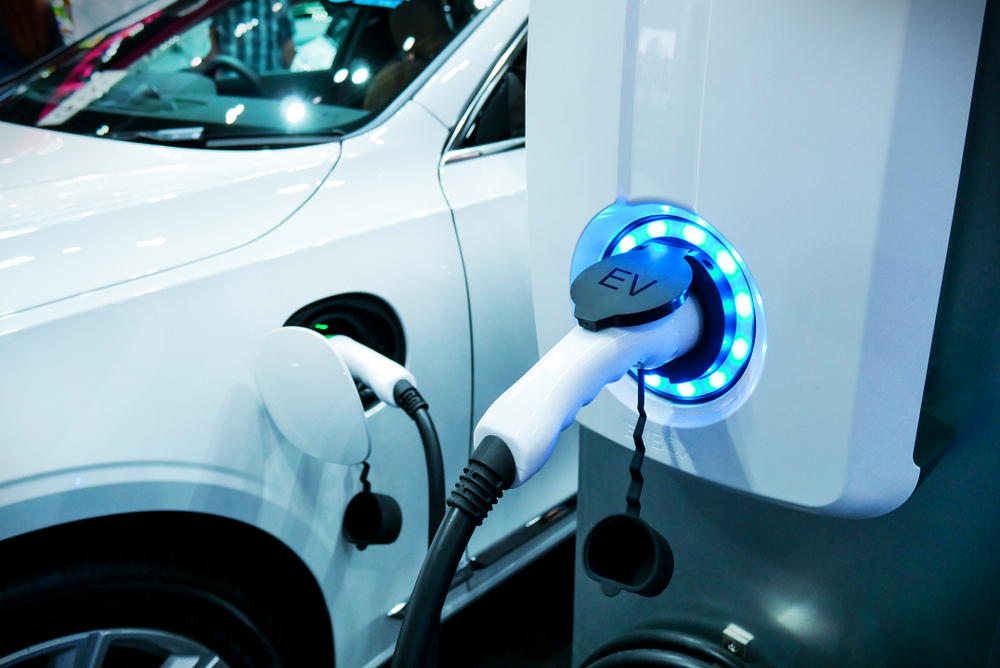Conspiracy mentality drives misinformation about EVs

A University of Queensland-led study has found misinformation about electric vehicles (EVs) has taken root in society, primarily fuelled by mistrust and conspiracy theories.
The University of Queensland (UQ) Business School postdoctoral research fellow Dr Chris Bretter says surveys in Australia, the US, Germany and Austria found people were more likely to agree than disagree with misinformation on EVs — even among those who owned one.
“The misinformation statements we tested included that EVs are more likely to catch fire than petrol cars, do not produce emission savings and emit electromagnetic fields that damage health … all claims which are demonstrably false,” he said.
“We know this sort of false information is out there and circulating, but the scale of acceptance is concerning and poses a significant challenge to the global transition to more sustainable transport.
“The fact that even EV owners were more likely than not to agree with misinformation underscores just how embedded it’s become in society.”
UQ Business School professor Matthew Hornsey says perhaps surprisingly, education played no role in whether survey respondents agreed with false information about EVs.
“The biggest predictor of whether a person accepted misinformation statements was actually conspiracy mentality – a tendency to believe conspiracies occur and seeing the world through a lens of corruption and secret agendas,” he said.
“This same outlook has also been associated with opposition to science-backed technologies like vaccinations and wind farms.”
Professor Hornsey says survey respondents had concerns about secret agendas to exaggerate the benefits of EVs, unethical profit-driven decisions, and unfounded or exaggerated concerns about the damage of EVs towards health and the environment.
“The results show public understanding of EVs has been distorted by an information landscape shaped by myths, selective framing and speculative reasoning,” he said.
Myths and misinformation are energy transition concerns
Wavering public sentiment around EVs could have significant implications for mining and the energy transition.
According to the IEA, across all vehicle modes, the deployment of EVs replaces the use of more than five million barrels of oil per day globally in 2030, making the market an important energy security consideration and significant player in the energy transition. Half of these savings are the result of EV adoption in China.
China dominates the EV outlook, with the country poised to continue leading in electric car sales to 2030, achieving a sales share of around 80% on the back of significant market momentum and competitively-priced EVs, according to the IEA Global EV Outlook 2025.
Globally, the share of electric cars in overall car sales is set to exceed 40% in 2030 under today’s policy settings despite uncertainties in the outlook, according to the IEA.
However, adoption is already lagging in Australia as the country settles into a familiar dig and ship role in EV supply chains.
According to the Australian Automobile Association (AAA), quarterly sales of electric vehicles fell to their lowest levels in two years in the March quarter amid a decline in overall vehicle sales and a sharp increase in sales of conventional hybrids and plug-in hybrids,
The AAA’s quarterly EV Index shows Australians bought 17,914 new battery electric vehicles (BEVs) in the three months to March 31 — equivalent to 6.3% of all new car sales. This was a reduction from 21,331 sales in the December 2024 quarter, or 7.42% of the market.
What this means for mining
The EV supply chain relies heavily on the mining of cobalt, graphite, lithium, manganese and nickel.
The geographical concentration of battery mineral mining and refining needed for battery cathodes and anodes is a concern. In 2023, Australia, Chile and China mined about 85% of global lithium, with almost 65% refined in China and another 25% in Chile, according to the IEA.
Despite a wealth of resources and growing EV adoption, lithium prices dropped nearly 20% in 2024, reaching similar prices to those at the end of 2015, despite lithium demand in 2024 being about six times bigger than in 2015, according to the IEA.
“Low critical mineral prices are primarily driven by supply surplus, which is making it difficult for some mining companies to compete, thus increasing the level of supply chain concentration among established players,” the IEA said in its Global EV Outlook 2025.
“This surplus is expected to persist over the next few years, but low prices could discourage future investments and might cause supply shortages for lithium and nickel by 2030.
“In addition, the high geographical and ownership concentration of their supply chains may cause market distortions, increasing market risk.
“An undersupply of lithium would push up prices, to the benefit of the mining sector but to the detriment of battery and EV makers, as well as final consumers.
“The recycling sector, which could help curb cost increases, would also benefit from higher mineral prices. However, due to feedstock limitations, it will take about a decade before recycling has a significant impact on reducing primary mineral demand.”
Tackling untruths with AI
The UQ researchers tested strategies to reduce belief in EV misinformation, increase support for pro-EV policy and an intention to purchase an EV.
“We provided survey respondents with a traditional fact sheet on EVs as well as a dialogue with ChatGPT,” Dr Bretter said.
“Encouragingly, both strategies resulted in lower endorsement of EV misinformation, even 10 days on.
“This is the first evidence that non-curated conversations with Generative AI can have positive effects on misinformation, showing its promise for possible future solution-focused interventions on a large scale.”
Dr Bretter says the potential for AI to help combat climate change needs to be assessed against the technology’s own environmental impacts but is a worthwhile research avenue.
“Given the global need to transition toward more sustainable transport options, it is crucial we address the prevalence of misinformation about energy efficient technologies like EVs,” he said.
The project also involved researchers from the Leibniz Institute for Psychology and the University of Hohenheim in Germany.






















